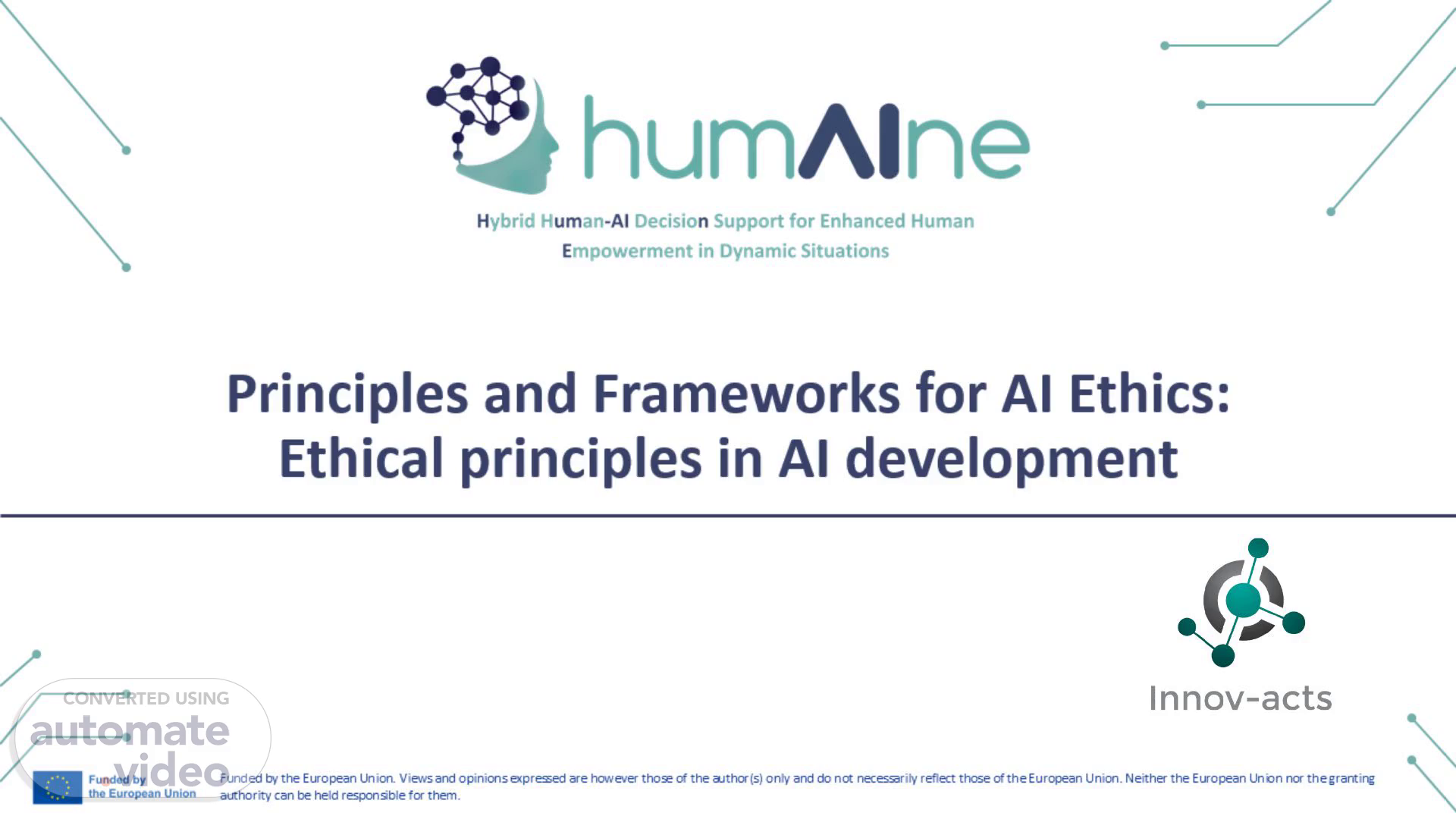
Principles and Frameworks for AI Ethics: Ethical principles in AI development
Scene 1 (0s)
[Audio] Principles and Frameworks for AI Ethics: Ethical principles in AI development.
Scene 2 (9s)
[Audio] In the fast-evolving field of AI, it's critical to incorporate ethical principles into development processes. Doing so ensures fairness, transparency, and accountability while mitigating potential risks. In this part of the course we explore key ethical principles that guide responsible AI development and promote positive outcomes for society..
Scene 3 (33s)
[Audio] The principle of beneficence encourages AI developers to maximize benefits and minimize harm. This means designing AI systems that enhance lives—whether it's through improving healthcare, increasing educational opportunities, or optimizing efficiency in various industries. Developers should carefully consider how their technologies impact all stakeholders and aim to provide broad societal benefits..
Scene 4 (1m 3s)
[Audio] Non-maleficence, or 'do no harm,' is a cornerstone of ethical AI. Developers must identify and minimize potential risks through rigorous testing and evaluation. Addressing issues like privacy, security, and discrimination is essential to prevent unintended consequences. By focusing on these areas, developers can safeguard individuals and communities from harm..
Scene 5 (1m 29s)
[Audio] Autonomy emphasizes the right of individuals to make their own decisions. AI systems should support—not manipulate—user choices. Developers can achieve this by providing transparency and user control, ensuring individuals understand how the technology works and make informed decisions about their engagement..
Scene 6 (1m 52s)
[Audio] The principle of justice is about fairness and equity. AI developers must actively avoid biases and discriminatory practices in their systems. Careful attention should be paid to the data used for training models, as biased data can lead to harmful outcomes. Ultimately, AI systems should promote social equity rather than exacerbate existing inequalities..
Scene 7 (2m 16s)
[Audio] Transparency is key to building trust in AI systems. Developers must be open about the capabilities, limitations, and intentions of their technology. Providing clear information about data collection practices and system operations allows users to engage with AI in an informed and meaningful way..
Scene 8 (2m 38s)
[Audio] Accountability ensures that AI developers are responsible for their technologies' outcomes and impacts. This involves creating mechanisms for feedback and addressing concerns in a timely manner. Correcting biases and errors promptly is critical to maintaining trust and ensuring responsible AI development..
Scene 9 (3m 0s)
[Audio] In conclusion, ethical principles are essential for creating responsible and trustworthy AI systems. Beneficence, non-maleficence, autonomy, justice, transparency, and accountability form the foundation of ethical AI. When properly considering these principles at every stage of development, companies can build a future where AI contributes positively to society..
Scene 10 (3m 31s)
Thank you for your attention!. humaine-horizon.eu.